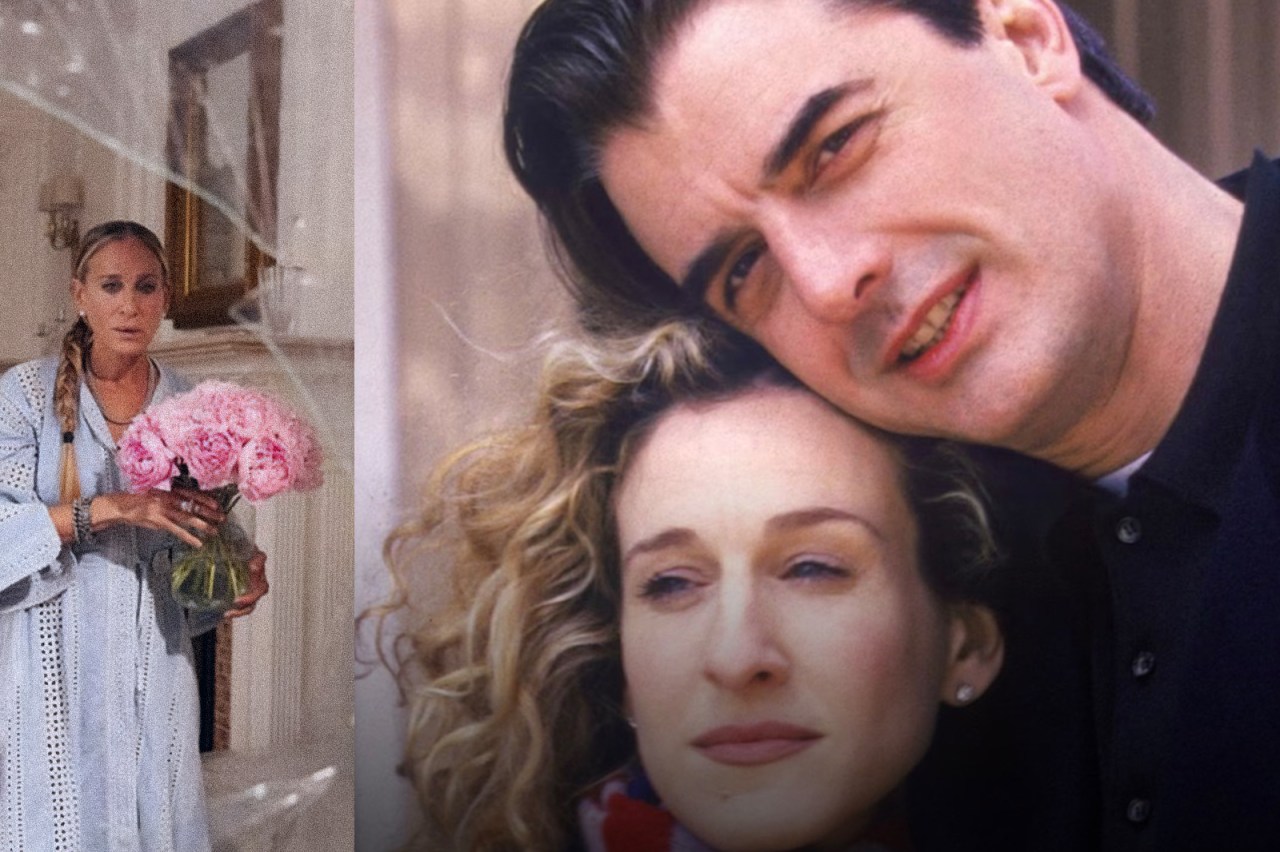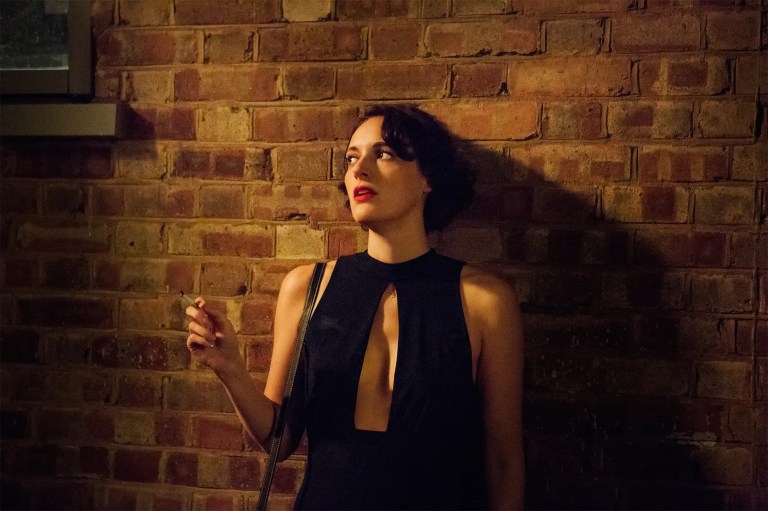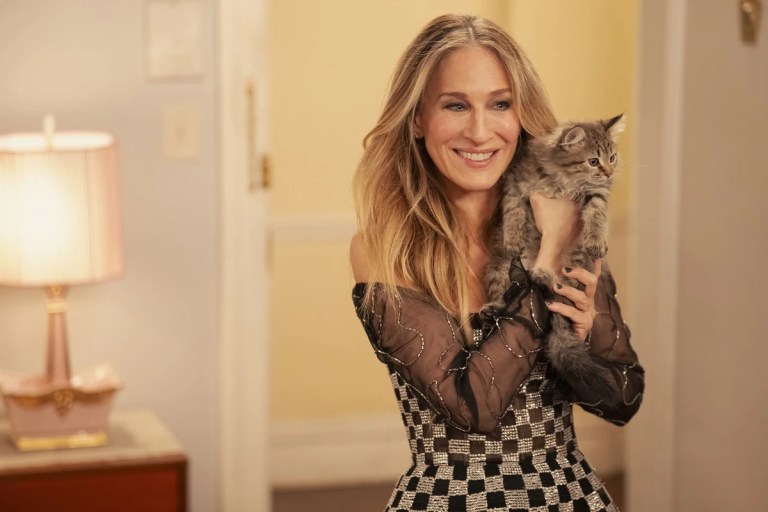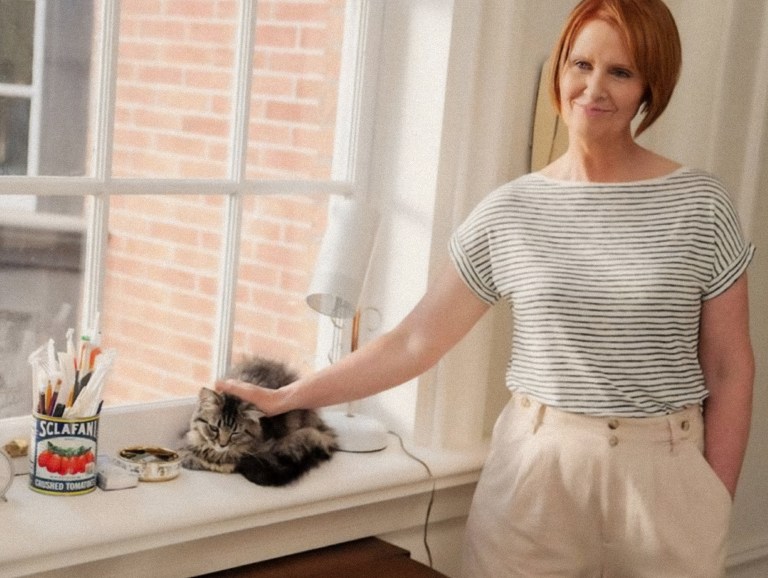
If I Were In The Writers Room: How ‘And Just Like That’ Could’ve Honored ‘Sex and the City’
I spend a lot of time ranting about And Just Like That and the lazy, soulless, tone-deaf mess it has become.
And while dragging the show has become a personal sport of mine (and, frankly, a public service), it’s only fair that I offer up some alternatives for what they could have done instead.
Because the issue isn’t just that it’s bad. It’s that it didn’t have to be. There was so much potential to explore aging, friendship, modern love, dating after loss, and identity — and they threw it all away in favor of TikTok jokes and plotlines about a canceled dog.
So here’s how they could’ve brought these women back with dignity, complexity, and — gasp — actual storytelling.
CARRIE BRADSHAW: Aging, Not Just Accessorizing
What they did: Killed off Big, handed her an oversized townhouse, too much money, and absolutely no discernible personality. She floats through grief and then — poof! — she’s fine. Suddenly Aidan’s back, and she acts like Big never existed. Now she just wanders around her six-bedroom mausoleum dressed like “Grandma of the Bride,” with zero purpose, zero drive, and maybe three thoughts per episode… two of which are about yogurt.
What they should have done: Big doesn’t die — they divorce. Their relationship should have ended the way it was always destined to: in divorce. Let’s be honest — Carrie and Big were never truly compatible. Their entire relationship was built on an unhealthy push-pull dynamic, the kind of emotional chaos that looks sexy on TV but is soul-crushing in real life.
Carrie only really wanted him when she couldn’t have him. The chase was the thrill. But once Big finally settled down, once he became the man she’d been begging him to be … suddenly she was bored. Remember in the second movie when she whined about becoming one of those couples who orders takeout and watches TV in bed? That was the writing on the wall.
So in the reboot, instead of conveniently killing him off, let Big do what he does best: emotionally check out. But this time, Carrie doesn’t chase him. She doesn’t spiral, beg, or make any impulsive decisions. She leaves. Not in a meltdown, but in a moment of grounded clarity.
The storyline becomes about Carrie finally choosing herself — not in a performative way, but in a “I’ve outgrown this man, and this version of myself, and it’s time to let go” kind of way.
Cue therapy. Cue journaling. Cue actual evolution. Carrie grows — not by finding a new man, but by finally getting to know herself.
Or Big dies… and he leaves her broke. Turns out Big’s fortune was built on smoke and mirrors (Silicon Valley crypto investments? A Ponzi scheme? Who cares, pick a flavor). Suddenly, Carrie’s back to square one — but older, wiser, and no longer writing about blowjobs in The New York Star. She starts a podcast or a Substack (or both!) called The Midlife City where she talks candidly about aging, dating, loss, and reinvention. It blows up because she’s real, raw, and finally interesting again. Think Eat, Pray, Podcast.
Carrie in therapy — actual therapy. Give us attachment theory, inner child work, EMDR. Let her finally unpack why she spent three decades chasing emotionally unavailable men and calling it romance. Let her learn something finally… it’s never too late!
And if she reconnects with Aidan… So this whole Aidan reunion is ridiculous. I don’t think they ever should’ve brought him back. I get that they thought they were doing fan service, but instead, they destroyed the character and turned him into a walking ick. But fine… if we must bring him back, then at least make it real.
Maybe they meet again… it’s sweet, it’s nostalgic… she considers going back, not because he’s The One, but because she’s lonely. Because the idea of dating again as a 50-something feels exhausting and it’s tempting to cling to something familiar.
But ultimately, she realizes Aidan represents a fantasy of safety she never actually wanted. And while it’s hard, she chooses to stand alone instead of going through yet another round of forcing a connection that’s never quite fit.
Now that’s character development.
CHARLOTTE YORK-GOLDENBLATT: Reclaiming Herself (Without Losing the Pearls)
What they did: They gave Charlotte a surface-level return to the workforce and tossed in a Harry cancer diagnosis — but somehow still managed to make it feel flat, hollow, and emotionally weightless. Instead of depth, they gave her nonsensical, borderline insulting storylines — like her dog being canceled. The woman who once passionately debated art, love, and tradition is now running around the Upper East Side panic-spiraling over dog PR.
They turned her into a cheerfully oblivious, la-la-land Stepford mom who lets her bratty kids walk all over her while she smiles through it like a sedated pageant queen. She has no real opinions, no fire, no nuance. Just glossy hair and panic over group texts.
And worst of all? They stripped her of her spine. Charlotte was never afraid to push back — especially when Carrie was making idiotic choices in her love life (which was often). The real Charlotte would never sit quietly while her best friend announced a “let’s wait five years and see” relationship plan with a man who lives in Virginia… a man who also slept with his ex wife barely few months into this stupid idea. Old Charlotte would’ve raised her eyebrows, clutched her pearls, and delivered a withering but loving reality check. New Charlotte just… nods and pours wine.
She used to be emotional, yes — but she was also principled, opinionated, and perceptive. Now she’s just wallpaper with Botox.
What they should have done: Charlotte’s whole identity has been wrapped up in being the “perfect” wife and mom. And while they tried to show her juggling work and family again, the execution lacked depth. They turned her into a. caricature of her former self rather than an evolution of who she used to be.
Let her choose to come back to life. Charlotte walks into a gallery — maybe for one of Lisa’s events — and something hits her. A photo. A painting. A feeling. She remembers who she was before the kids, the PTA meetings, the gluten-free birthday parties. She misses that woman. She doesn’t just “go back to work” — she rediscovers her passion. Maybe she starts curating again, or launches a small gallery, or mentors young women in the art world. Her return to herself isn’t about getting out of the house, it’s about reconnecting with the vibrant, ambitious, opinionated woman she used to be.
Make the Harry cancer arc count. This could’ve been their realest, rawest storyline yet. Not just a health scare, but a wake-up call. They confront mortality, resentment, love. Charlotte realizes she’s been managing everything — including Harry — like a checklist, and Harry admits to feeling sidelined in the family. Let them fall apart. Let them come back together. Let them rediscover each other not as co-parents, but as lovers and partners.
Show Charlotte evolving — but still being Charlotte. We don’t need her to become Miranda 2.0. Let her keep her pearls and her weird obsession with monograms, but give her some damn dimension. Let her wrestle with how her upbringing shaped her. Let her finally ask, “Did I really want this life — or did I just think I was supposed to?”
And for the love of Prada, let her have fun. Charlotte used to be funny. Dramatic, passionate, a little unhinged in the best way. Let’s bring that back. Less PTA panic, more wine-soaked brunches where she accidentally microdoses and starts theorizing about the feminist implications of penis art. (You know she’d go viral on TikTok and not understand why.)
Charlotte’s arc should have been about reclaiming herself — not just as a mother or a wife, but as a woman.
MIRANDA HOBBES: The Midlife Glow-Up We Deserved
What they did: Gave her a queer awakening that felt more like a nervous breakdown. And then turned her into a completely unrecognizable version of herself — a woman who used to be sharp, self-assured, and unapologetically no-nonsense is now a bumbling, wide-eyed mess who fumbles through every scene like she’s on the verge of a panic attack. Being a lesbian suddenly becomes her entire personality, and not in an empowered, grounded way — in a deranged, unhinged kind of way.
She went from partner at a high-powered law firm to someone who can’t make eye contact, can’t navigate a bar, and apparently can’t confront anyone — including her best friend. This is the woman who used to check Carrie daily on her relationship nonsense, and now she’s too scared to say, “Hey, maybe waiting five years for a man who lives in Virginia and just slept with his e wife isn’t the healthiest plan”?
And let’s talk about how they made her weak. And cringey. And borderline predatory. The once-pragmatic, fiercely independent Miranda is now hitting on women like she’s trying to win a bet at last call. It’s not empowering, it’s a midlife crisis wrapped in rainbow flags and poorly written punchlines.
They flattened Miranda into a caricature. They stripped her of her edge, her integrity, and her intelligence. And in the process, they turned one of the show’s most complex, relatable women into a cautionary tale of what happens when writers mistake personality change for character development.
What they should have done: Keep the queer arc — but make it make sense. Miranda’s attraction to Che shouldn’t be about suddenly swapping out Steve for chaos and vape pens, it should be about freedom. About rediscovering a part of herself she buried under years of motherhood, marriage, and managing everyone else’s needs. Che represents escape — from predictability, from routine, from being responsible all the time.
But eventually, the cracks show. Because Che isn’t the answer, Che is the detour. And Miranda, for once, stops running. She asks herself the real questions: Can I be free and still build something real? Can I be in a relationship without disappearing into it?
She chooses growth, not by becoming someone new, but by reclaiming who she’s always been underneath all the Type-A armor. She softens, but is still smart, honest and brave… not some fumbling caricature who’s scared to eat yogurt in Carrie’s kitchen.
Miranda dates men again — but different men. Look, she doesn’t have to go back to Steve or pretend the whole queer arc never happened. She can still explore her sexuality, figure out if she’s actually a lesbian, just curious, or simply sick of being disappointed by mediocre men — all totally valid midlife revelations.
But let’s give her options. She meets someone unexpected. A man who’s kind, emotionally intelligent, maybe a little quirky. He doesn’t make millions or quote Nietzsche, but he makes her feel seen. He challenges her assumptions about masculinity, about success, about what it actually means to feel safe in a relationship.
Also, Miranda was pretty insecure dating as a 30-something, it would be amazing to see her date from a more empowered place in her 50s. It’s not about choosing men or women — it’s about choosing herself.
Career reinvention. She’s burned out on law. Maybe she becomes a professor. Maybe she works for a non-profit. Maybe she writes a book. But she finds purpose again and we get to watch a brilliant woman choose reinvention.
SAMANTHA JONES (Because in our version, she never left us)
What they did: Ghosted her, sent a sad little text, and tossed her 90 seconds of screen time in a parked car with dialogue that sounded like it was written by someone who’s only heard of Samantha through a BuzzFeed quiz. Oh, and they tried to convince us she moved to London in a passive-aggressive rage because Carrie no longer needed her as a publicist. Please. The real Samantha did PR for Carrie in exchange for martinis, not money. She was high-powered, wildly successful, and absolutely not dependent on Carrie’s writing career to pay the bills.
If anything, Samantha would’ve walked away because she’d outgrown the group. She’d moved on to bigger, glossier, more glamorous things — not because she was sulking over a client relationship ending. Give the woman some dignity.
What they should have done: Samantha thriving in her 60s. She’s not sitting around waiting for Carrie’s half-baked podcast invites. She’s running a global PR empire out of London, casually mentoring a rotating roster of Gen Z “it” girls and turning them into icons. She’s getting quoted in Vogue, dating the most eligible men, and maybe even writing a memoir called Ageless Sex Appeal which, naturally, gets banned on Instagram for being “too provocative at her age.” She takes it as a compliment.
She’s just too famous for them now. Not in a mean way, in a Samantha way. She still loves the girls, but her life is bigger now. She’ll text them, maybe FaceTime from the back of a limo in Paris, but she doesn’t have time to babysit Carrie through another Aidan-induced identity crisis.
Bonus Plotlines That Don’t Suck
Bring in a Gen Z protégé.
Carrie hires a smart, opinionated 24-year-old to help with her podcast or social media and it’s gold. This girl has no reverence for Carrie’s glory days, rolls her eyes at every outdated take, and calls her out when she’s acting like a Boomer. She becomes part intern, part therapist, part roast comic. But underneath the sass, the intergenerational dynamic brings both comedy and growth.
Give us redemption arcs.
Let some old flames resurface but make it healing. Maybe Berger comes back- he finally made it as a successful author and he and Cartrie cross paths. He’s been to therapy and takes accountability… maybe their relationship is what inspired his latest book!
Actually explore aging.
Stop using menopause and invisibility as cheap jokes. Let’s talk about dating over 50 without turning it into a pity party. Let’s talk about sex, identity, desirability, and what it means to be a woman who’s no longer the youngest or hottest in the room — but still has something to say. These women are not done and there are still stories to tell, tell them!
And just like that… it could’ve been brilliant.
But instead, we got yogurt fights, meat cleaver cameos, and Carrie catering to manchild Aidan’s temper tantrums.
It didn’t have to be this way. The legacy of Sex and the City was built on boldness, wit, and truth. It deserved a continuation that honored that.
We were rooting for you.
We were all rooting for you.











